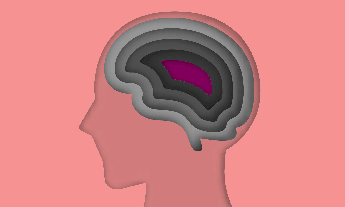
Love picking up new skills that can enrich your daily life? If so, TED Courses is for you — it was created with all you forever learners and self-improvers in mind and taught by some of your favorite TED speakers. Neuroscientist and bestselling author Lisa Genova is the instructor for a course called “How to boost your brain + memory.” Go here to find out about it, and also read her advice below on common types of forgetting.
To be human is to forget things. But you’ve probably wondered: “When is forgetting normal, and when is it not?”
Here are four examples.
1. Forgetting where you parked
Not remembering where you parked because you didn’t pay attention is normal and different than what happens with Alzheimer’s.
If you have Alzheimer’s, let’s say you park in a mall garage and shop for an hour. When you return to the parking garage, you’re not wondering if you parked on level three or level four, you’re thinking, “I don’t remember how I got here.” Or you’re standing in front of your car, but you don’t recognize it as yours.
2. Forgetting a person’s name or movie title
Having a word stuck on the tip of your tongue — that oh-what’s-their-name phenomenon called blocking — is normal and does not mean you have Alzheimer’s.
This is one of the most common experiences of memory retrieval failure. You’re trying to come up with a word and most often a proper noun, such as a person’s name or a movie title. You know you know this word, but you cannot retrieve it on demand.
Yet with that said, failure to retrieve words can also be an early sign of Alzheimer’s. So how can you know whether it’s an ordinary tip-of-the-tongue moment or a symptom of dementia? If it’s Alzheimer’s, you’re blocking on dozens of words a day. And instead of blanking primarily on proper nouns, people with Alzheimer’s will regularly forget common nouns such as pen, spoon, bicycle.
3. Forgetting where you put your keys or other objects
Losing track of where you left your keys is normal, and it’s probably just a result of your not paying attention to them.
But losing your keys and finding them in a place that keys shouldn’t be (like the refrigerator or microwave), or finding them and wondering who they belong to or what they’re used for is not normal. These could be symptoms of Alzheimer’s.
4. Forgetting how to do an activity like making coffee
This one has to do with your muscle memory, which is remarkably stable over time — we tend to remember how to do what we’ve learned to do, especially when it’s an activity we perform routinely.
So if you go to make a cup of coffee and don’t remember how to work the machine or you’re doing laundry but can’t remember how to use the washer or you’re stumped by any other tasks you’ve long known how to do and regularly do, this may be a sign of Alzheimer’s.
However, forgetting doesn’t always have to be due to Alzheimer’s. It could be due to mild cognitive impairment (which doesn’t necessarily progress to Alzheimer’s), a B-12 deficiency or not enough sleep, to name a few causes. Just as you do with your heart health or reproductive health, I encourage you to be in conversation with your doctor about your memory and realize you have a lot of agency over your brain health.
Interested in finding out more about how your memory works (and when it doesn’t)? Sign up now for Lisa Genova’s on brain and memory. And while you’re at it, check out our other TED Courses from some of your most loved speakers and learn more skills to boost your life. Among them: Podcast host Manoush Zomorodi offers insights in “how to reimagine your career”; writers Charlie Jane Anders and Wanuri Kahiu teach “how to nurture your imagination”; and educator and author Julie Lythcott-Haims tells you “how to become your best adult self.”
Watch her TED Talk now:












